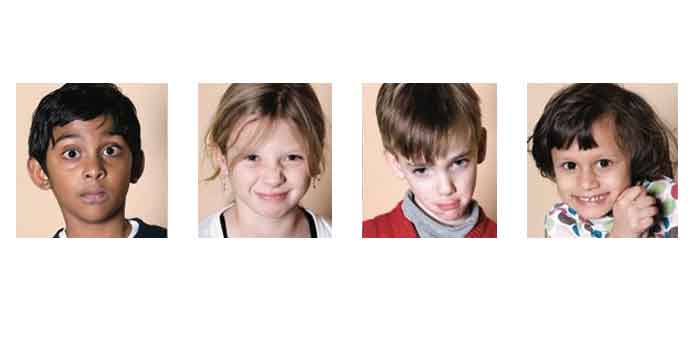“I need to talk to you about my daughter Audrey,” Cindy said.
She was a petite blonde woman, beautifully dressed, who was clearly making an effort to remain calm and cheerful.
My son Robert, who’s 5, is autistic,” she said. “He can’t tolerate loud noises, or being touched or any change in routine. I spend hours persuading him to change clothes, even though all his shirts are identical blue polos. My daughter Sandy is 10 and has learning disabilities, which I could deal with—which I do deal with—but she also has huge behavioral issues. She’ll touch Robert repeatedly or scream over and over, just to make him lose control. She strung all my Christmas ornaments on a clothesline in the basement and shot them with a BB gun.”
“You were starting to talk about your other daughter, Audrey,” I reminded her.
“That’s just the problem,” Cindy said. “Audrey always gets lost in the shuffle. She’s dyslexic, and in any other household, the focus would be on her needs, but I never have the time.”
Audrey, who was 7, has short brown hair cut in bangs and a wonderfully calm disposition, and she turned out to be one of my most endearing patients. Sometimes the siblings of children with severe problems feel they’re getting shortchanged or overlooked. But Audrey never seemed to feel resentment.
I think of empathy as a natural characteristic in children and that it comes in small, medium and large. Some children have the minimum, but like other forms of social-emotional learning, empathy can be taught. In fact that was part of my work with Audrey’s siblings. Audrey, however, needed no such guidance. In her, empathy came in extra-large.
When she saw that her older sister was about to torment her younger brother, Audrey would coax Sandy outside to ride bikes or to see how big a pile of leaves they could make to jump in or lure her to the kitchen to make milkshakes. When Sandy swept everything off the shelf in Robert’s bedroom, Audrey quickly put everything in its right place before Robert could see the chaos and be upset by it.
You could see that despite Sandy’s bossiness and bursts of temper and destructiveness, Audrey understood her and cared about her, and Sandy responded to it. Robert never thanked her—he rarely looked at her—but their mother noticed he would gravitate to the room where Audrey was sitting, and play there.
I saw the Sullivans for more than 10 years. As Audrey was finishing high school she came in to discuss her college plans.
“You know, Dr. L., I’ve learned so much from living in my family, I feel I should use that knowledge,” she said. “I’m thinking of becoming a special education teacher.”
What, for some children, would have been torment and cause for resentment was, for an empathic child like Audrey, a special opportunity to learn, to contribute, to become wise.
That’s a story of heart and what heart can accomplish.
4 Ways to Teach Your Child Empathy
Some children are naturally empathetic; others can learn to recognize and sympathize with other people’s feelings.
1. If your young child seems baffled by or indifferent to the emotion’s of others, try drawing faces together, or take turns with your child making a face that’s happy, sad, calm, bored, angry or surprised. Each should guess what the other’s face expresses.
2. Model empathic behavior. A parent might say: “Your sister Noel seems upset. Let’s ask her what’s bothering her.” Or: “Noel is sad that her friend cancelled their sleepover. How can we make her feel better?”
3. Encourage your child to see things from another person’s perspective. “You’re really good at soccer, but Bradley isn’t. Do you think he wants to keep playing? What could you do that he would like?”
4. Help your child recognize that people have different interests and preferences. See if your child can list the favorite ice cream flavors of family members and friends. Or ask what different people do for fun: Who plays baseball? Who builds with Legos? Who plays cards? Who plays video games? This sounds simple, but even older children can benefit from a habit of reminding themselves of their friends’ likes and dislikes before they get together.

